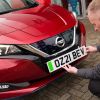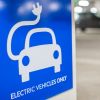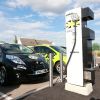But how will the move towards electric vehicles (or EVs) affect our lives, from our day-to-day commutes to the state of our towns and cities?
To give you a sense of what we can expect, we answer some of the key questions around the impact of electric vehicles here in the UK.
Will electric cars reduce air pollution?

Walk along a busy road in your town and you’ll get a good idea of just how much air pollution a line of traffic can belch out. But that could be a thing of the past when we make the switch to EVs.
EVs produce zero direct emissions (that’s emissions straight from the exhaust), a fact which should drastically improve air quality in and around cities, main routes and sensitive locations, like schools and hospitals.
In terms of indirect emissions, that really depends on how the electricity powering the cars is generated. A car charged using solar power will produce fewer indirect emissions than one whose energy comes from coal or gas.
Happily, the UK’s power grid is becoming increasingly less reliant on fossil fuels. The National Grid claims zero carbon energy sources (such as solar, wind and nuclear) generated 51% of the UK’s electricity in 2023.
However it’s not only exhaust fumes that pollute the atmosphere. Brakes and tyres also contribute to harmful emissions.
Every time you drive a car, tiny fragments of particulate matter are released into the air from brake and tyre wear, as well as from the road surface. These particles enter the airstream and can have a damaging effect on people’s health. Plastic particles from tyres can also harm marine wildlife if they get deposited into water through sewers.
It has been suggested that EVs produce more tyre and brake pollution than petrol and diesel vehicles, but studies have since largely debunked these theories. EVs are generally heavier, which increases the potential for tyre wear, but countering this is the fact that EVs use regenerative braking far more than friction braking.
Overall, EV owners can still be confident that their vehicle is producing much fewer potentially harmful emissions than a vehicle with a combustion engine.
How will electric cars affect noise pollution?
It’s not just air pollution that EVs will help cut – the roads will also be a lot quieter once the electric revolution really kicks in, as zero-emission cars make very little noise when compared to their internal combustion counterparts.
This might not sound that important, but replacing the current roar of a main road filled with petrol and diesel cars with the light whirr of EVs will make a huge difference if you live on or near one.
However, it will mean we’ll need to change our habits. Quiet cars mean other road users won’t be able to simply listen out and trust their ears anymore, so pedestrians will have to remember to stop and look properly before crossing the street.
This is partly addressed by noise systems designed to reduce the external silence of electric cars. According to EU rules mirrored by the UK government, EVs must generate a specified level of noise (usually via an external speaker) when they are reversing or running below 20km/h (around 12mph).
But don’t worry, these sound emitters are almost always much quieter than a roaring exhaust pipe.
Will electric cars impact our towns and cities?
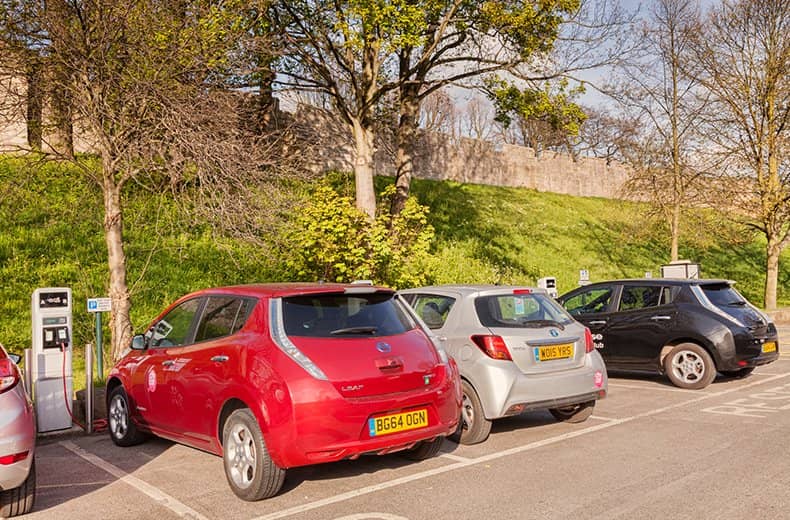
Yes, and not just by making them quieter and cleaner. The most obvious way is the electric charging points that are appearing in large numbers on our streets, in motorway service areas and in supermarket car parks to ensure motorists stay charged at all times.
We'll see petrol stations start to disappear as well. EV owners want to charge their cars somewhere that they'll be stationary for a little while, so petrol stations set up on busy, urban transit routes won't be as popular. The forecourts will remain, but the sites will surely be inhabited by other businesses once the petrol and diesel vehicles they were built to serve become less common.
Our streets and buildings will look cleaner, too. Soot from exhaust fumes sticks to buildings, making them increasingly dirty over time but as EVs don’t emit fumes these buildings (once cleaned) will retain a fresher look.
How will electric cars affect climate change?
Hopefully in a positive manner. With no direct emissions, EVs do not contribute to greenhouse gases when being operated, which should help the UK meet its 2050 target of net zero greenhouse gas emissions.
However, there are concerns about indirect impacts, such as how the electricity is produced in the first place and the amount of energy and resources used to make electric car batteries – which includes the mining of rare materials.
Current efforts to reduce the amount of cobalt in the batteries are helping to mitigate the use of rare earth metals, but as things stand the average electric car needs to travel tens of thousands of miles to offset the increased resources used in its production compared to a petrol car.
Progress is the key term here, though; the National Grid will only get cleaner, production will only get more efficient and as an EV racks up the miles its production carbon footprint matters less. These issues will be further addressed, meaning the overall goal of tackling the effects of climate change should be aided by the electric transition.

RAC sale – up to 33% off*
• Roadside cover from £5.29 a month†
• We get to most breakdowns in 60 mins or less
• Our patrols fix 4/5 breakdowns on the spot

Will electric cars affect the cost of electricity?
From a personal finance perspective, it’ll largely depend on how you charge your car. If you can charge at home, you’ll be able to take advantage of cheaper off-peak tariffs but if you’re using a public charge point, this will generally be more expensive.
The impact on electricity prices remains to be predicted, as money for grid investments will need to come from somewhere. Concerns have been raised about whether the UK’s power grid can handle the increase in EVs, although with technology evolving all the time, worries over potential blackouts are likely to be premature.
How will electric cars affect my commute?
Probably not as much as you think. Just because cars are turning to electric power instead of petrol or diesel doesn’t mean there will automatically be less traffic on the road, and levels could well stay the same.
A positive should be the reduction in local emissions, so you’ll be breathing cleaner when you’re walking from the car park or train station to the office.
In terms of how your commute will change when driving an EV, however, the reduced noise, vibration and harshness (combined with the instant power and lack of gears) should reduce stress. Unless, that is, you can’t charge it at home and your commute is long enough to warrant a charging stop.
How will electric cars affect road tax?
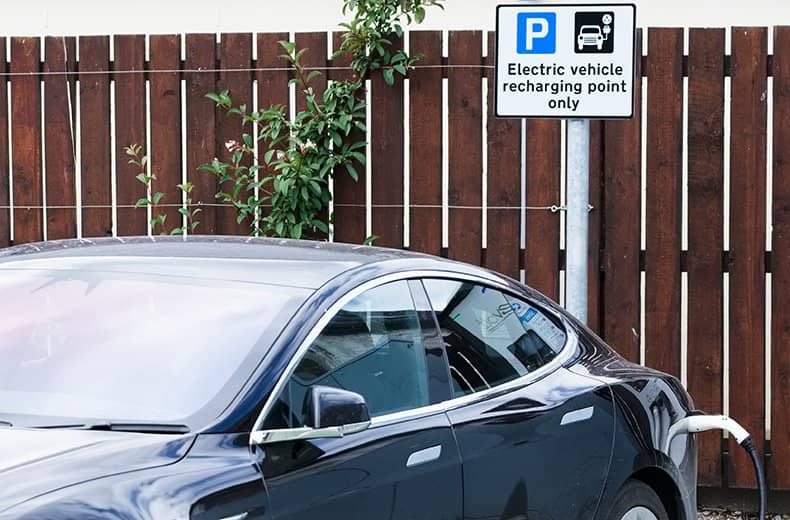
Vehicle Excise Duty (VED) is essentially a tax for using the roads, and while electric cars currently pay zero VED that will all change in 2025. Then, EVs are subject to the standard VED rate, along with the £40,000 premium car tax fee and first-year showroom tax.
The tax brings in around £29 billion for the Treasury every year. Fuel duty brings in another £25 billion or so, but as the revenue brought in from fuel duty decreases with more electric cars on the road this money will need to come from elsewhere. These revenue-raising solutions are still being decided by Government.
Will electric cars mean fewer jobs?
On one hand, electric cars have fewer moving parts meaning they are less likely to require maintenance and repair by mechanics – so it’s possible there will be fewer mechanic jobs in the future.
However, should the UK continue to develop its EV industry and its manufacture of greener vehicles, it’s likely more jobs will be created in factories around the country to support this.
The switch to electric cars shouldn’t have too much impact on delivery and transit jobs, although car plants producing petrol and diesel vehicles will need to adapt to the new law.
The RAC is the number one breakdown cover provider for electric vehicles the first breakdown assistance company in the UK to introduce a mobile charging unit for electric vehicle owners who have run out of charge. Find out more about RAC EV Boost.
Are you ready to go electric and not look back? Or perhaps you want to hold on to your combustion engine? Leave us a comment below.
Read next in Running an electric car
Is electric car insurance cheaper? Find out by reading our guide next.
Return to the RAC Drive Electric cars hub
Read our guides on choosing, charging and running an electric car.

RAC sale – up to 33% off*
• Roadside cover from £5.29 a month†
• We get to most breakdowns in 60 mins or less
• Our patrols fix 4/5 breakdowns on the spot






